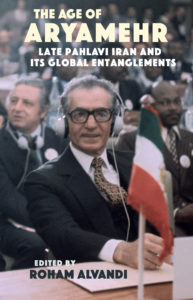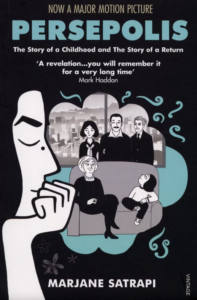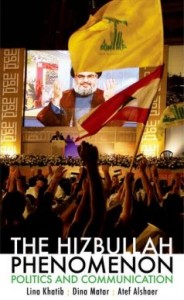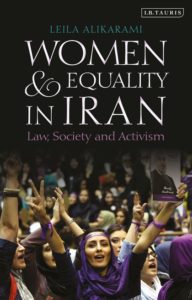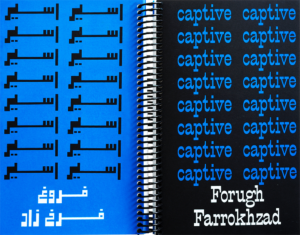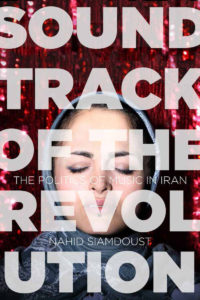ISBN: 9781909942189
Pages: 380
Publisher: Ginkgo, 2018
Language: English
Dimensions: 15.24 x 3.05 x 22.86 cm
The reign of the last Shah of Iran, Mohammad Reza Pahlavi (1941-1979), marked the high-point of Iran’s global interconnectedness. Never before, nor ever since, have Iranians felt the impact of global political, social, economic, and cultural forces so intimately in their national and daily lives, nor have Iranian actors played such an important global role, on battlefields, barricades, and in board rooms far beyond Iran’s borders. Modern Iran is in many ways the product of the global interconnectedness that dramatically accelerated in the 1960s and 1970s. From the launch of the Shah’s White Revolution in 1963 to his overthrow in the popular Revolution of 1978-79, Iran experienced the longest period of sustained economic growth that the country had ever experienced. The shift in power from oil consumer to oil producers fuelled the modernisation aspirations of a generation of Iranians, in the context of competing capitalist and Marxist models of development. The history of Pahlavi Iran has traditionally been written as prologue to the 1979 Iranian Revolution. These histories largely locate the political, social and cultural origins of the revolution firmly within a national context, into which global actors intruded and Iranian actors retreated. While engaging with this national narrative, this volume is concerned with Iran’s place in the global history of the 1960s and 1970s. It examines and highlights the transnational threads that connected Pahlavi Iran to the world, from global traffic in modern art and narcotics, to the embrace of American social science by Iranian technocrats and the encounter of European intellectuals with the Iranian Revolution. In doing so, this volume seeks to write Pahlavi Iran into the global history of the 1960s and 1970s, when Iran mattered far beyond its borders.
Roham Alvandi is Associate Professor of International History and Director of the IDEAS Cold War Studies Project at the London School of Economics and Political Science (LSE). He is the author of Nixon, Kissinger, and the Shah: The United States and Iran in the Cold War (2014).
TABLE OF CONTENT:
Roham Alvandi – Introduction: Iran in the Age of Aryamehr
Ramin Nassehi – Domesticating Cold War Economic Ideas: The Rise of Iranian Developmentalism in the 1950s and 1960s
Maziyar Ghiabi – The Opium of the State: Local and Global Drug Prohibition in Iran, 1941–1979
Robert Steele – Pahlavi Iran on the Global Stage: The Shah’s 1971 Persepolis Celebrations
H. E. Chehabi – A Cosmopolitan Dandy: Amir Abbas Hoveyda
H. E. Chehabi – The Shiraz Festival and its Place in Iran’s Revolutionary Mythology
Samine Tabatabaei – Nation Branding: The Prospect of Collecting Modern and Contemporary Art in Pahlavi Iran
Claudia Castiglioni – ‘Anti-Imperialism of Fools’? The European Intellectual Left and The Iranian Revolution
Cyrus Schayegh – Iran’s Global Long 1970s: An Empire Project, Civilisational Developmentalism, and the Crisis of the Global North
Roham Alvandi’s edited volume brings together valuable studies on Mohammad Reza Shah Pahlavi’s reign in a transnational context. What makes this compendium of essays even more significant is [the fact that] the contributors to this volume re-examine the development of Iranian culture and politics without being swayed by the final episode, the revolution
— Professor Touraj Atabaki, Senior Research Fellow at the International Institute of Social History, Amsterdam
This impressive collection of essays offers a detailed study of the last three decades of Mohammad Reza Shah’s rule in Iran, and it is as interesting as it is useful. It should be used in both undergraduate and graduate courses on the history of twentieth-century Iran
— Dr Homa Katouzian, Iran Heritage Foundation Research Fellow, St Antony’s College, and Member, Faculty of Oriental Studies, University of Oxford
This volume brings together a diverse range of innovative and insightful surveys of Iran’s developmental state together with its achievements and errors, and also its transnational connections, during the late Pahlavi period
— Dr Ali Gheissari, Professor of History, University of San Diego, and Editor-in-Chief of Iranian Studies
